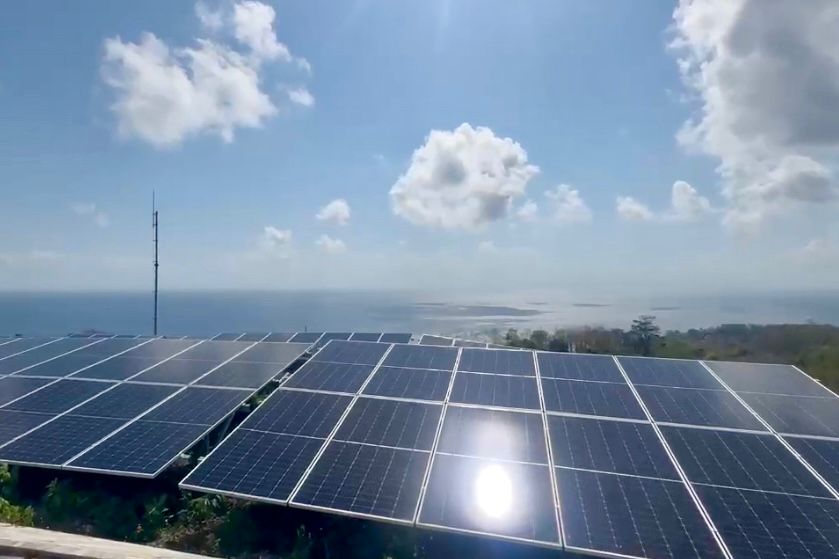Indonesia’s state‑owned electricity company, PLN, has begun operating the Smart Microgrid in Nusa Penida, an intelligent power system powered by advanced digital technology that automatically manages various power plants and energy storage units.
The implementation of this system reflects PLN’s commitment to maintaining reliable electricity supply while accelerating the transition toward clean energy in Nusa Penida, Bali.
PLN President Director Darmawan Prasodjo explained that the operation of the smart microgrid is an important step toward realizing a fair and sustainable future electricity system.
“We are building a future for Indonesia’s energy that is fair, efficient, and sustainable. Through smart microgrids, PLN is moving from being a conventional electricity provider to a technology-based energy company that is ready to face the era of global energy transition,” Prasodjo explained as reported by Kumparan.com.
PLN’s Director of Distribution, Arsyadany Ghana Akmalaputri, added that this project is part of PLN’s transformation toward a smarter, more resilient, and environmentally friendly energy network.
She stated, “PLN is building a sustainable distribution system. A system that is smart in managing data and technology efficiently and responsively, and ready to face the challenges of the era of energy transition and digitalization.”
Arsyadany also explained that electricity systems in Nusa Penida, Nusa Lembongan, and Nusa Ceningan previously relied entirely on diesel power plants.
With the integration of the 3.5 MWp Suana Solar Power Plant and the 1.8 MWh Battery Energy Storage System (BESS), the supply is now managed automatically and in real time.
He stressed, “This technology is not just for big cities. In fact, on small islands like Nusa Penida, smart microgrids symbolize energy justice, ensuring that from the coast to the border, communities have the right to enjoy clean and sustainable electricity.”
General Manager of PLN Bali, Eric Rossi Priyo Nugroho, stated that the Smart Microgrid Nusa Penida is part of PLN’s efforts to accelerate distribution digitalization and support the transition to green energy.
According to RRI.co.id, he explained,”This smart microgrid is expected to be able to orchestrate power plants with different characteristics, such as diesel power plants, solar power plants, and battery energy storage systems (BESS) to improve the reliability of the electricity system and reduce the basic cost of electricity supply.”
As of August 2025, the electricity system in Nusa Penida has served more than 23,000 customers with an installed capacity of 60.91 MVA and an energy transaction volume of 59.82 GWh.
The smart microgrid has made the region’s electricity system more efficient, resilient, and supportive of Bali’s vision of becoming a green and energy-independent region.
Sources : Kumparan.com, RRI.co.id
Feat Image : via PLN

